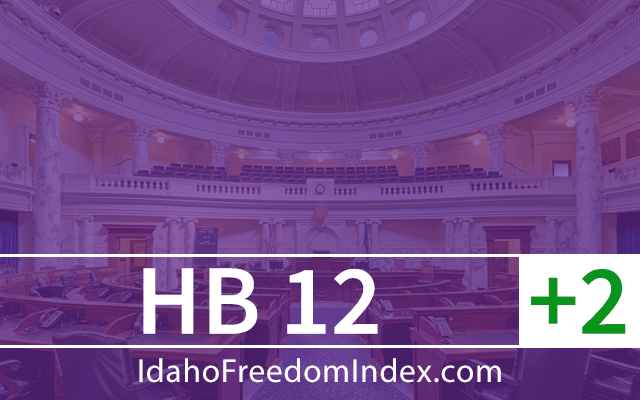


Bill description: HB 12 would make it easier to prescribe opioid antagonists and would eliminate an educational program run by the Department of Health and Welfare.
Rating: +2
Does it give government any new, additional, or expanded power to prohibit, restrict, or regulate activities in the free market? Conversely, does it eliminate or reduce government intervention in the market?
HB 12 would make it easier for pharmacists and other health professionals to prescribe or dispense opioid antagonists. These drugs, such as Naloxone, are used to combat opioid overdoses. Numerous studies have found that when opioid antagonists are administered in response to an overdose, survival rates range between 83 percent to 96 percent.
By changing state law to strike language limiting the authority of pharmacists and certain other professionals to prescribe opioid antagonists and allowing any health professional to prescribe or dispense these life-saving drugs, HB 12 would expand the ability of these medical professionals to do their jobs.
(+1)
Does it transfer a function of the private sector to the government? Examples include government ownership or control of any providers of goods or services such as the Land Board's purchase of a self-storage facility, mandatory emissions testing, or pre-kindergarten. Conversely, does it eliminate a function of government or return a function of government to the private sector?
The Department of Health and Welfare is currently responsible for managing “an online program for laypersons and the general public on matters pertaining to opiate-related overdoses,” covering symptoms of overdoses, emergency procedures in the event of an overdose, and how to administer opioid antagonists.
HB 12 would take this educational programming out of the department’s responsibilities, leaving it to private individuals, organizations and associations to take on these educational efforts.
(+1)


